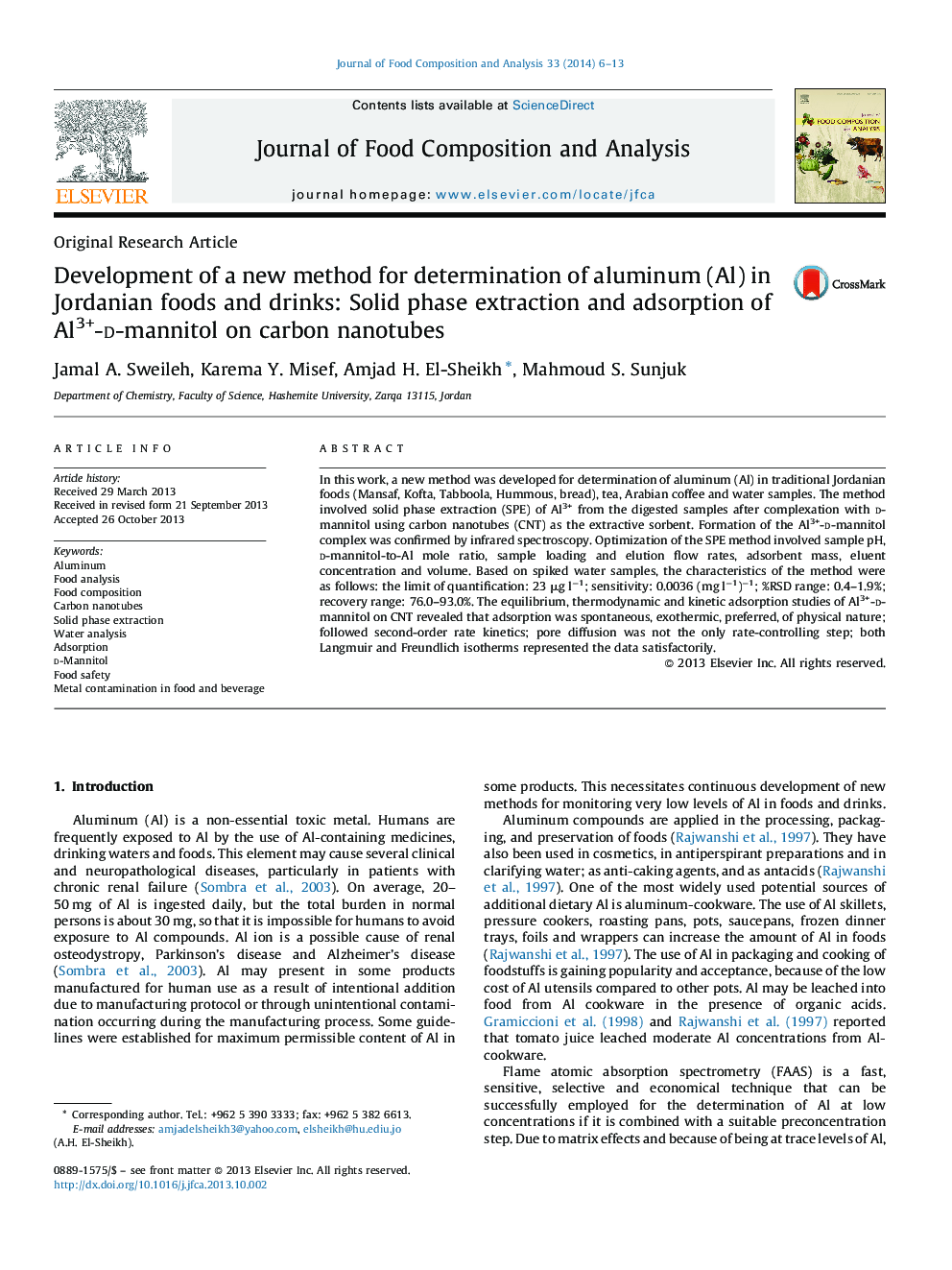| Article ID | Journal | Published Year | Pages | File Type |
|---|---|---|---|---|
| 1218281 | Journal of Food Composition and Analysis | 2014 | 8 Pages |
•Complexing Al3+ with d-mannitol enhanced its extraction with carbon nanotubes.•A method was optimized for Al determination in Jordanian foods, drinks, water.•Formation of the Al3+-d-mannitol complex was confirmed by IR spectroscopy.•Adsorption of Al3+-d-mannitol was spontaneous, exothermic, of physical nature.
In this work, a new method was developed for determination of aluminum (Al) in traditional Jordanian foods (Mansaf, Kofta, Tabboola, Hummous, bread), tea, Arabian coffee and water samples. The method involved solid phase extraction (SPE) of Al3+ from the digested samples after complexation with d-mannitol using carbon nanotubes (CNT) as the extractive sorbent. Formation of the Al3+-d-mannitol complex was confirmed by infrared spectroscopy. Optimization of the SPE method involved sample pH, d-mannitol-to-Al mole ratio, sample loading and elution flow rates, adsorbent mass, eluent concentration and volume. Based on spiked water samples, the characteristics of the method were as follows: the limit of quantification: 23 μg l−1; sensitivity: 0.0036 (mg l−1)−1; %RSD range: 0.4–1.9%; recovery range: 76.0–93.0%. The equilibrium, thermodynamic and kinetic adsorption studies of Al3+-d-mannitol on CNT revealed that adsorption was spontaneous, exothermic, preferred, of physical nature; followed second-order rate kinetics; pore diffusion was not the only rate-controlling step; both Langmuir and Freundlich isotherms represented the data satisfactorily.
